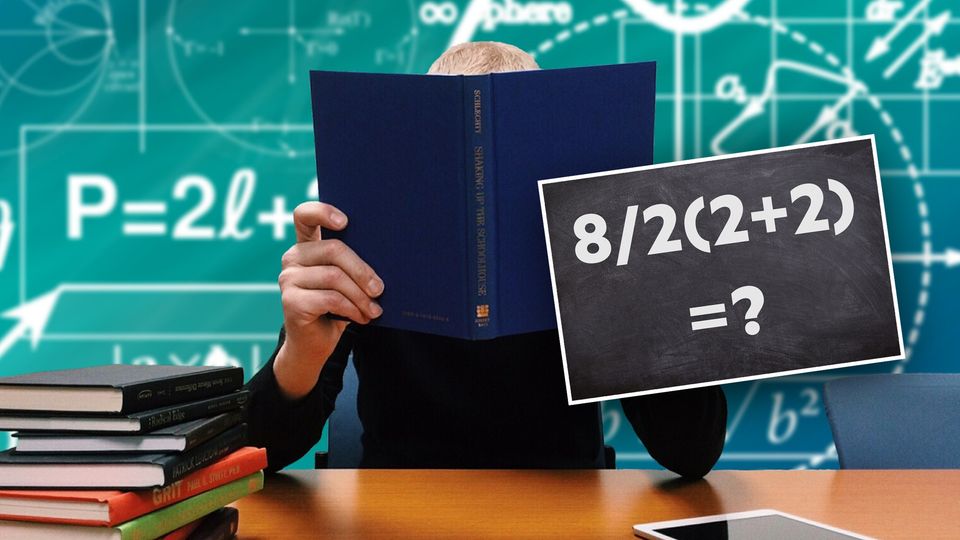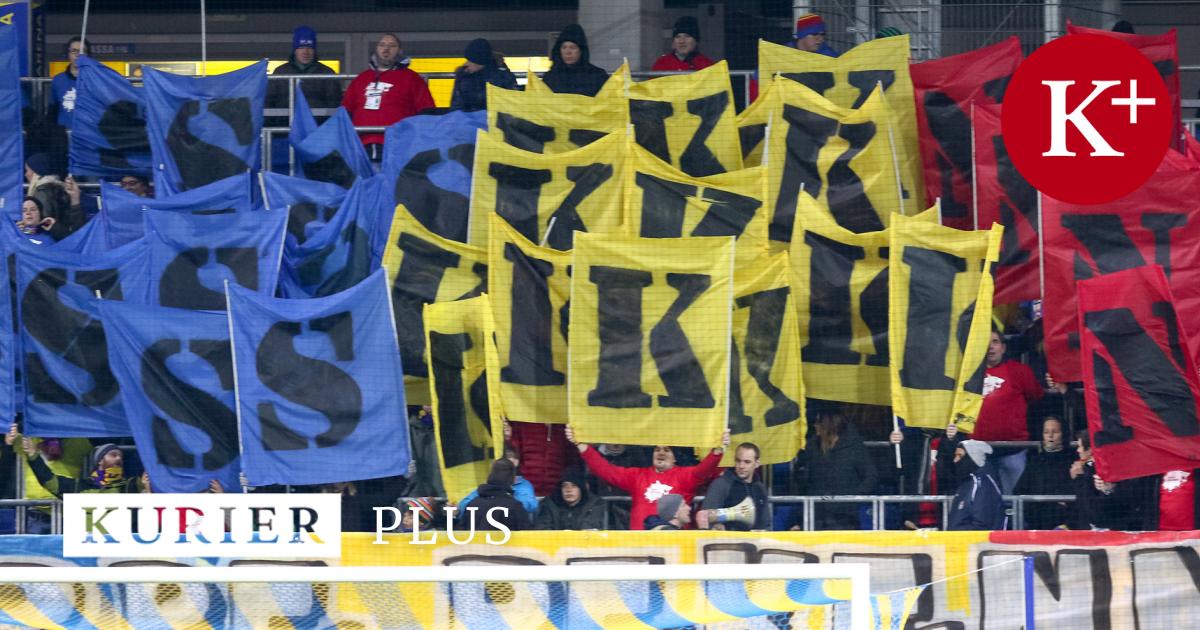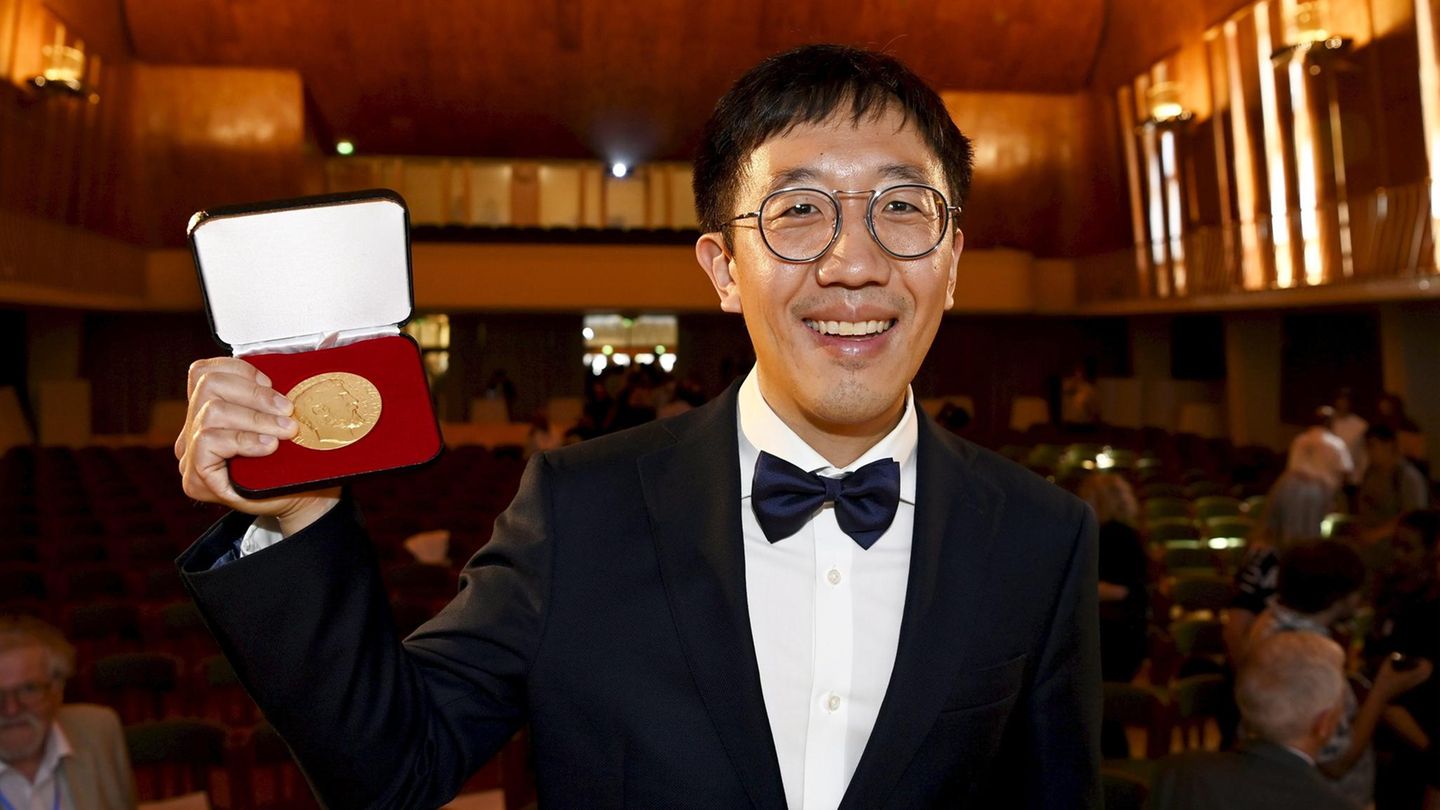Fields Medal
School dropouts won the ‘Nobel Prize in Mathematics’: ‘I knew I was smart’
Mathematician Jun Hu with the Fields Medal
© Visa Moylanin/Picture Alliance
Jun Huo was not an outstanding student. He was already drawn to poetry, but by turns he became a mathematician – and now has the highest award in his field.
Jun Huh shot from ear to ear when he was awarded the Fields Medal during a ceremony in Helsinki. The Medal is the highest scientific award for mathematicians and is often referred to as a type of “Mathematics Nobel Prize” – with the difference that the Nobel Prizes are awarded every year, but the Fields Medal only every four years. For a long time, the 39-year-old probably did not expect to receive such an honor.
Huo’s path to the top of his domain took many turns. For a long time he had nothing to do with mathematics. Even when he got the medal, he was still not sure why it was awarded in the first place: “Honestly, I don’t know,” Huo said. “But I have doubts.” The Princeton professor deals mainly with complex problems in the field of combinatorics in algebraic geometry.
Fields Medal: Jun Huo really wanted to be a poet
Huo was born in California, then his parents immigrated to Seoul. His father was studying statistics there, but his passion for numbers did not spread to his son at first. When his father gave him math problems, Huh always found ways to get the answers. His school performance was only mediocre. “I knew I was smart, but I couldn’t prove it with my school grades,” he told Quanta Magazine in 2017.
In general, he felt a greater affinity for language. At the age of 16, Huo dropped out of school to write poetry. But this also did not satisfy him: the writing process was difficult for the young poet, and he often found dealing with his inner being frustrating, he told Quanta: “I wanted to be someone who writes great poems. But I don’t want to write great poems.”

He only studied math at the age of 23
He soon rejected the idea of being a great career poet. Instead, he considered becoming a science journalist and took courses in astronomy and physics at the university. But here, too, he lacked perspective: “I was generally lost, not knowing what to do or what I was good at.”
As a student, he came to mathematics by chance: he was inspired by a lecture given by mathematics professor Hisuki Hironaka. Hironaka did not provide any ready-made answers in his lectures, but rather let the students share his thoughts: “Basically, he just talked about what he was thinking yesterday.” Many overwhelmed, out of the 200 participants, only five were left in the end – one of them was Jun Huo. At the age of 23 he dealt with complex mathematical problems for the first time, and after 16 years he received the highest award in his field.
Looking back, Huh’s wrapping through poetry doesn’t surprise him: “They both feel like you’re ingesting something that’s already there, not like something you’re making out of your mind.” A mathematician works only three hours a day and usually can’t focus for much longer – whether it’s on math problems or organizational tasks. “So I’m exhausted,” he says. “Doing something that is valuable, purposeful, and creative takes a lot of energy.”
Sources: Quanta magazine / “The New York Times”

“Tv expert. Hardcore creator. Extreme music fan. Lifelong twitter geek. Certified travel enthusiast. Baconaholic. Pop culture nerd. Reader. Freelance student.”







More Stories
The new charging method could double battery life
High-fiber breakfast: The best filler
No heart attack: Former Bundesliga player Ivan Ndyka collapses on the pitch